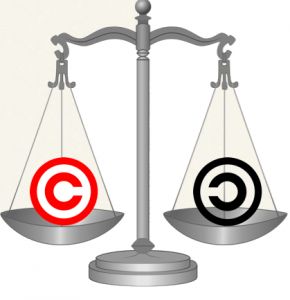 In April 2009, the EU parliament approved an extension of the copyright term for music recordings from 50 years to 70 years (see the official press release). This decision followed a hot debate between the music industry, which campaigned for this extension as it would allow it to extend the flow of revenues derived from music recorded in the 1960s, and a wide array of opponents who were convinced that the measure was likely to damage European creative endeavor and innovation. The opponents’ voice was partly heard by the Parliament as it did not follow the initial proposal from the European Commission to increase the copyright term from 50 to 95 years but settled instead on 70 years.
In April 2009, the EU parliament approved an extension of the copyright term for music recordings from 50 years to 70 years (see the official press release). This decision followed a hot debate between the music industry, which campaigned for this extension as it would allow it to extend the flow of revenues derived from music recorded in the 1960s, and a wide array of opponents who were convinced that the measure was likely to damage European creative endeavor and innovation. The opponents’ voice was partly heard by the Parliament as it did not follow the initial proposal from the European Commission to increase the copyright term from 50 to 95 years but settled instead on 70 years.
The proposed extension ot 95 years was designed to match the length of the sound recording copyright in the US, as extended in 1998 under the Copyright Term Extension Act (CTEA, aka Sonny Bono Copyright Act) in 1998. The US extension had also been met with significant amount of resistance. Some commentators saw the extensive lobbying of Walt Disney behind this extension (see, e.g., this provocative post on the Technology Liberation Front blog). More rigorously, seventeen economists (among them five Nobel laureates) wrote in 2002 that according to them,
“[i]t is highly unlikely that the economic benefits from copyright extension under the CTEA outweigh the costs” (see the full analysis).
To justify this statement, the economists argued that the revenues earned during the additional 20 years of protection are so heavily discounted that they lose almost all value, while the extended protection of existing works generates immediate deadweight losses (which are even larger when taking the increased cost of creating new derivative work into account). Although the previous argumentation relies on very sound theoretical reasoning, it lacks solid empirical grounds. Stan Liebowitz (professor of economics at University of Texas at Dallas) stresses this point in the report that he prepared for the IFPI (International Federation of the Phonographic Industry) in 2007 and that was submitted to the European Commission:
“there are numerous economic grounds that can be adduced to support a request for extending the copyright on sound recordings. There are clear benefits that will arise from an increase in new creations and the proposed increase in copyright are large enough to lead to measurable increases in new production. While it is also true that there are increased costs, in the sense that copyright allows price to stay above the cost of reproduction, no one has measured the size of these costs to determine how large they are. Nor is there evidence that these costs lead to prices being above a competitive “zero profit” level since the costs of production need to be recouped in some manner. Even if there were some monopoly power, the removal of this inefficiency in the sound recording market would entail treating the creators of the sound recordings, whose talent would be the cause of the monopoly power, more harshly than the treatment given to the many owners of other unique assets with similar efficiency characteristics elsewhere in the economy.”
The debate remains thus open and one can only encourage economists to refine the empirical analysis of the economic effects of changing the copyright term.
And you? What do you think? If you had to weigh the pros and cons of copyright extension, what would you recommend? To help you organize your thoughts, you can use the framework proposed by William Nordhaus in his book “Innovation, Growth, and Welfare” published in 1969 (for a presentation of this framework, see the slides for Lecture 4).

